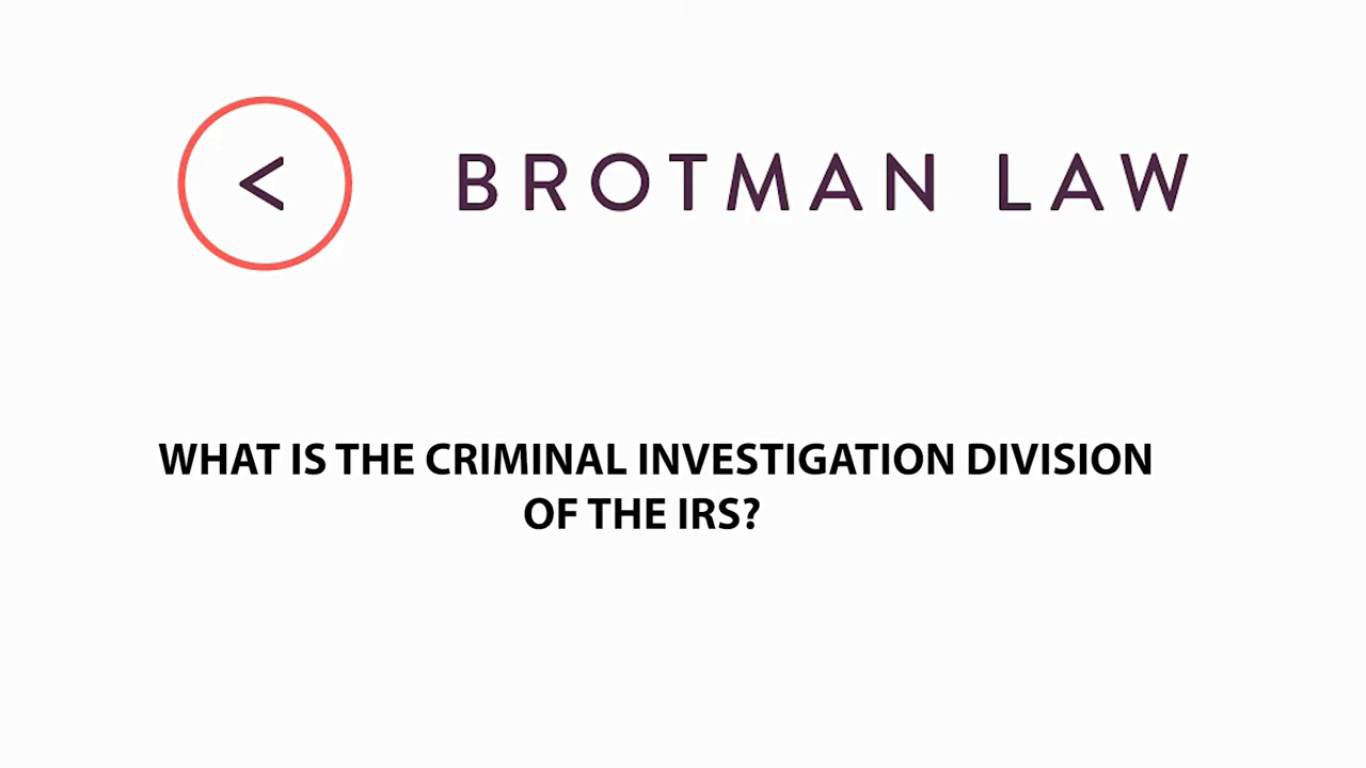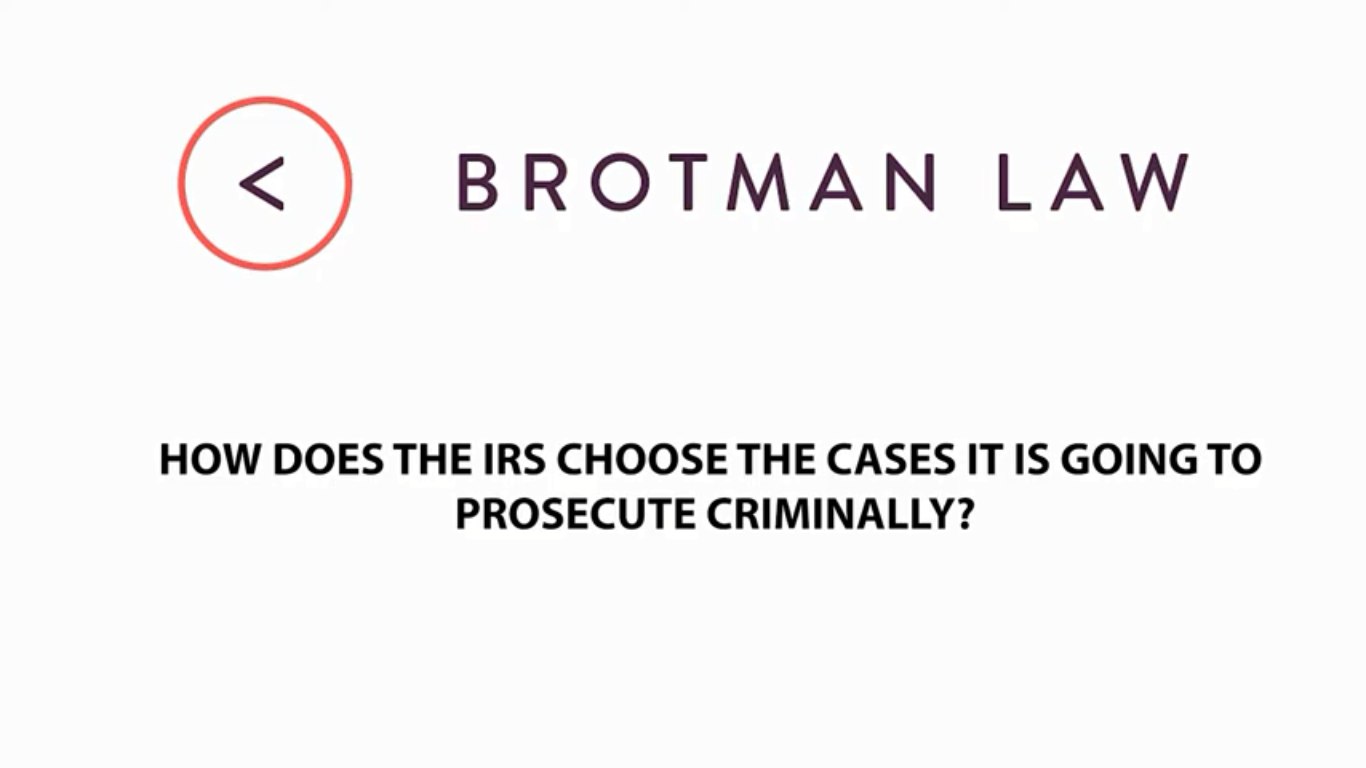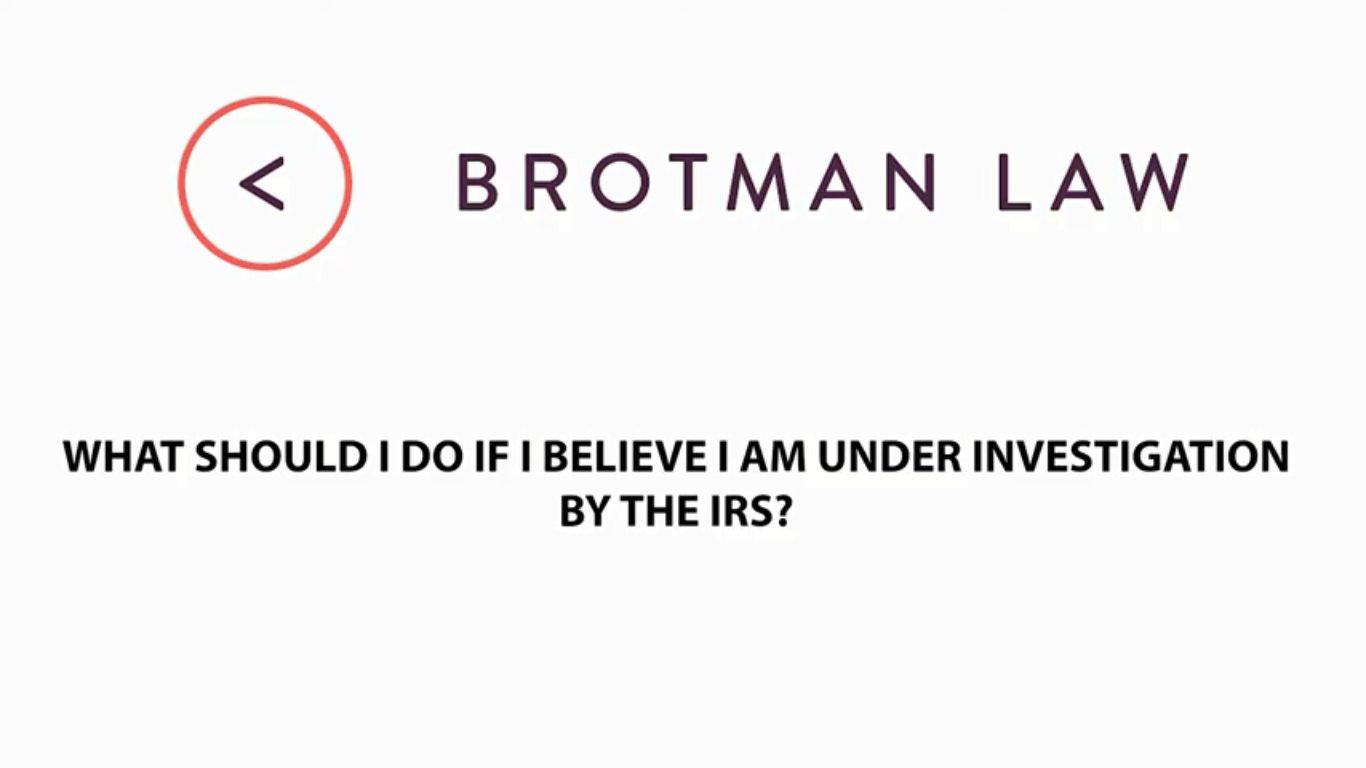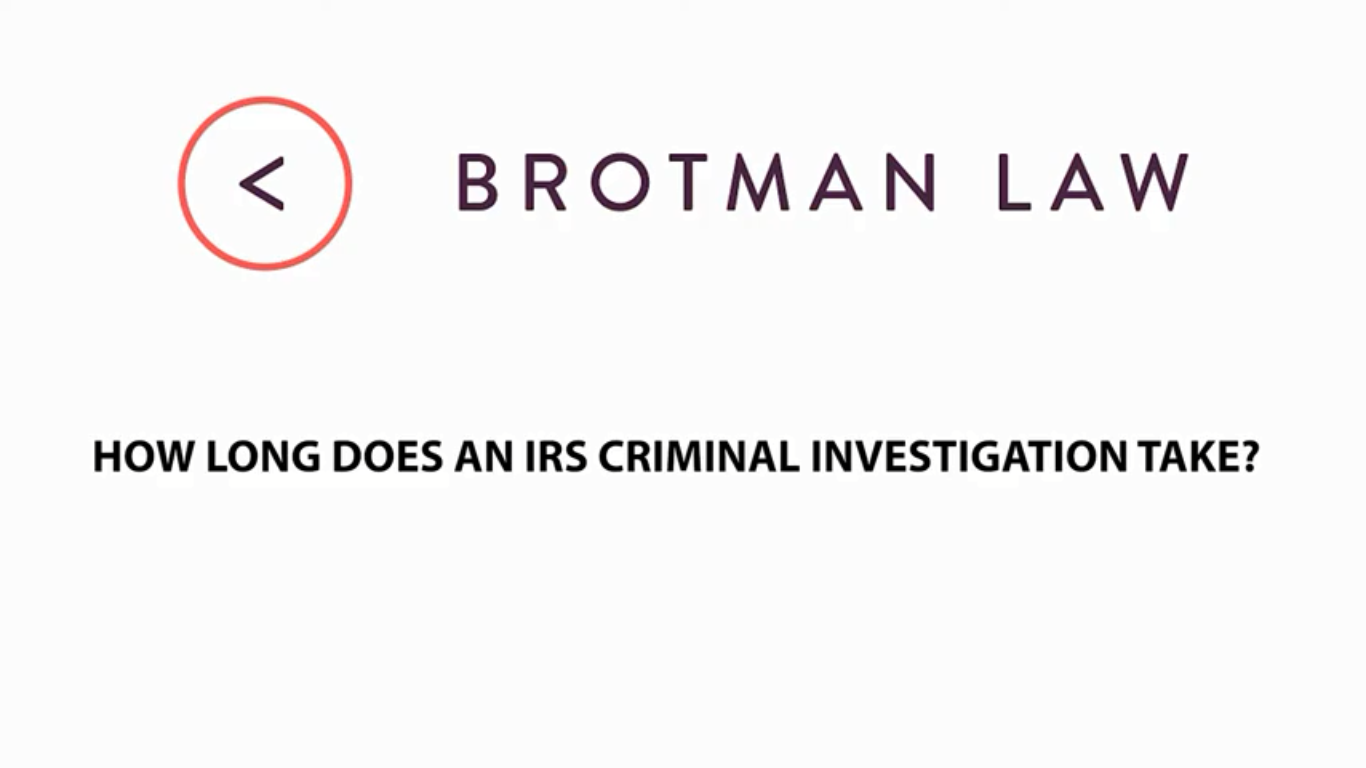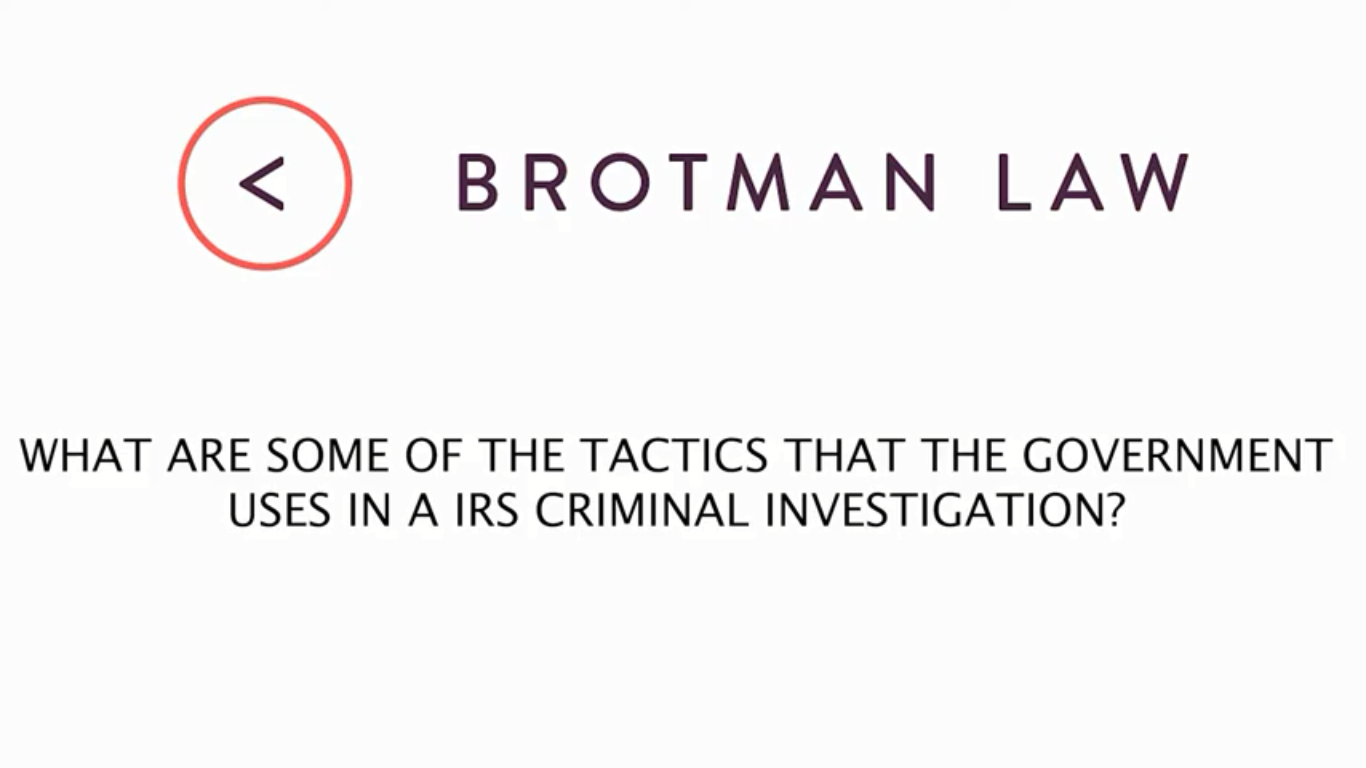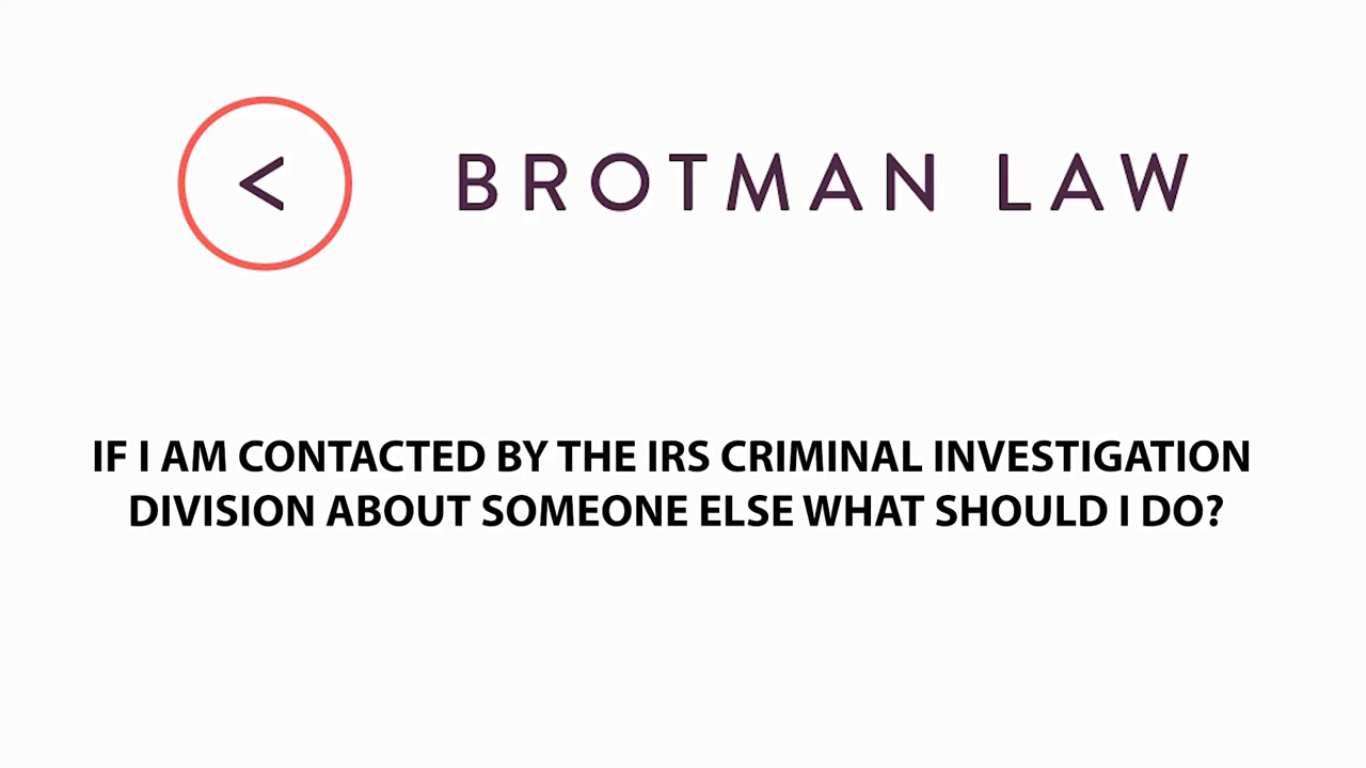So if you’re watching this video and you believe that you’re being investigated criminally by the IRS, you probably have a good sense of why you’re being investigated and depending on how certain you are of this, you need to stop right now. You need to call an attorney and you need to retain a criminal tax attorney to help you. The reason for that is criminal investigations are multi-year investigations. They’re very focused, they’re very detail-oriented and the criminal agents that work these cases put in a lot of time. Often when the subject of these investigations or the target of these investigations become aware that a criminal agent is looking into their conduct, it’s already too late because the government is very far along on the case. They’ve started either contacting third party witnesses, they’ve contacted the subject or target directly, or they’ve taken other action to make their presence known. They don’t make their presence known unless they’re pretty far along in their case. In the beginning they go knock on somebody’s door, but know they’re working behind the scenes. They’re looking at tax returns that were filed, they’re looking at other source documents, they’re looking at information, they’re pulling bank records and they’re building a case. Only after they’ve built that case and they’re certain or fairly certain that they’re going to attain a conviction do they go out in the field and start collaborating. So by the time you become aware that a criminal agent is on to you they may be very very far along or you may be almost the point
What Is the Criminal Investigation Division of the IRS?
The Criminal Investigative Division is exactly what it sounds like it is the central investigative.
